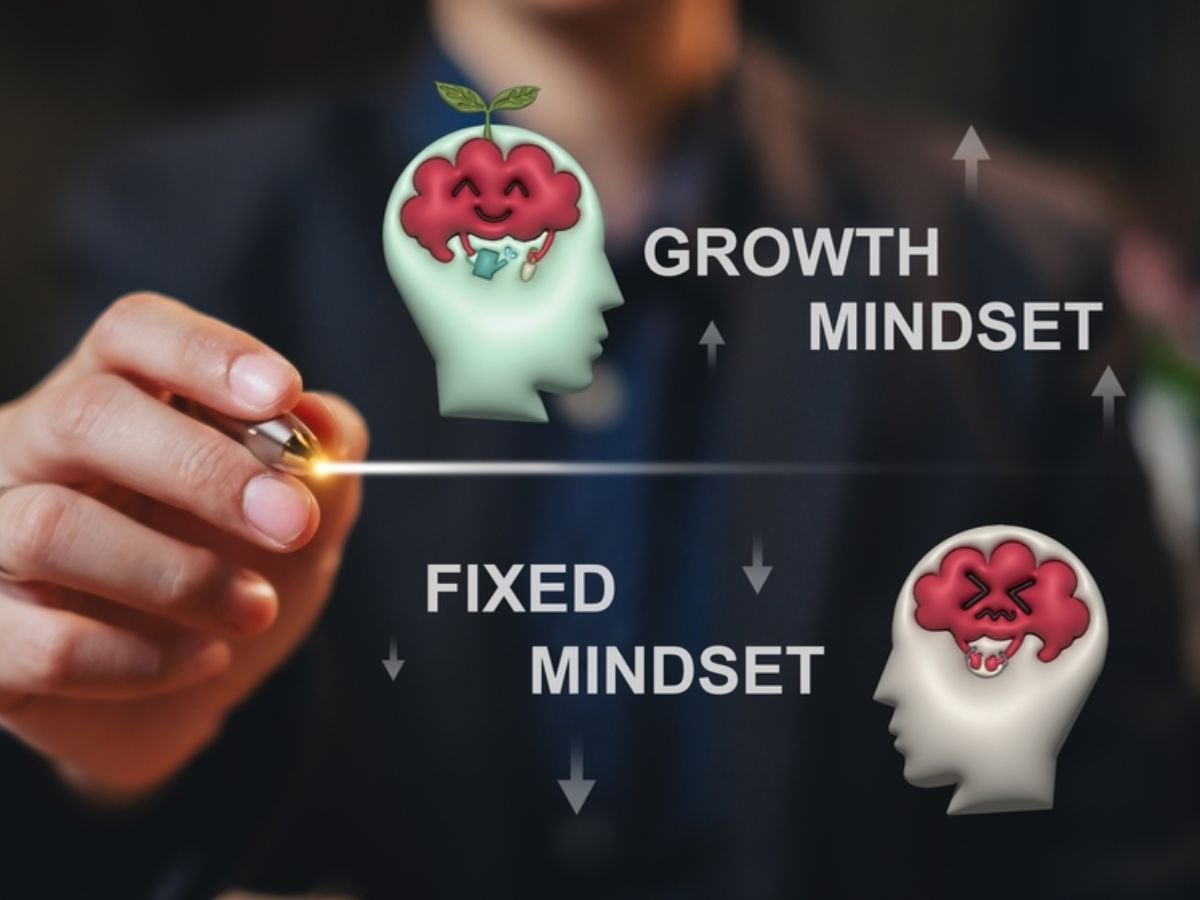The way we approach challenges and setbacks plays a crucial role in shaping our mental health. While some people view failures as permanent obstacles, others see them as opportunities to learn and grow. This shift in perspective is known as a growth mindset—a powerful concept that can drastically improve your mental well-being. In this blog, we will explore how to cultivate a growth mindset and how embracing this mindset can benefit your mental health, resilience, and overall quality of life.
What Is a Growth Mindset and Why Is It Important for Mental Health?
A growth mindset, a term coined by psychologist Carol Dweck, is the belief that abilities and intelligence can be developed through effort, learning, and persistence. Unlike a fixed mindset, where individuals believe their talents are innate and unchangeable, a growth mindset encourages a belief in personal development.
Research on Growth Mindset and Mental Health
Studies have shown that cultivating a growth mindset can lead to numerous mental health benefits. In a 2016 study published in Psychological Science, individuals who adopted a growth mindset were better equipped to manage stress, recover from setbacks, and reduce symptoms of anxiety and depression. The research suggests that seeing challenges as opportunities for growth rather than threats can alleviate mental distress and foster emotional resilience.
People with a growth mindset are more likely to embrace failure as part of the learning process. This mindset shift helps reduce fear of failure, anxiety about performance, and the negative self-talk that often accompanies stress. Moreover, research indicates that those with a growth mindset tend to experience lower levels of depression and higher levels of well-being due to their more adaptive coping strategies.
How to Cultivate a Growth Mindset for Better Mental Health
1. Reframe Your Self-Talk
One of the most powerful ways to foster a growth mindset is by changing the way you talk to yourself. Instead of saying, “I can’t do this,” try, “I can’t do this yet, but I’m working on it.” This simple shift helps reinforce the idea that abilities are not fixed and can be improved over time.
Example:
When faced with a challenging task, instead of thinking, “I’m terrible at this,” remind yourself that with effort and practice, you can improve. For instance, if you struggle with public speaking, instead of avoiding opportunities, start seeing each presentation as a chance to improve.
2. Embrace Challenges
A key component of a growth mindset is actively seeking challenges. Instead of avoiding difficult tasks, approach them as chances to develop new skills. When you face a challenge, remind yourself that struggling with something difficult is part of the learning process.
Actionable Tip:
Set small, achievable goals that push you out of your comfort zone. For example, if you’re anxious about taking on leadership roles, start by volunteering for small team projects and gradually work your way up to bigger responsibilities.
3. View Effort as the Path to Mastery
People with a growth mindset understand that success doesn’t come easily, and that effort is essential for growth. Recognizing that effort is a sign of progress rather than a sign of inadequacy helps you stay motivated, even when things get tough.
Real-Life Example:
Sarah, a student who struggled with math, decided to put in extra effort each day by practicing problems regularly. Over time, her skills improved, and her anxiety about math reduced. Instead of focusing on how difficult math was, she focused on the progress she was making.
4. Learn from Criticism
Instead of seeing criticism as a personal attack, people with a growth mindset use it as constructive feedback. Embrace criticism as an opportunity to learn and grow, whether it comes from colleagues, friends, or family.
Actionable Tip:
When you receive feedback, take a moment to process it. Reflect on what you can learn from it, rather than focusing on any negative feelings it may evoke. For example, if a manager provides feedback on your presentation skills, view it as an opportunity to refine your approach for next time.
5. Celebrate Your Efforts, Not Just Results
In a growth mindset, the emphasis is placed on the process, not just the outcome. Celebrate the efforts you put into achieving your goals, even if you haven’t reached the final destination yet. Recognizing the value in effort helps maintain motivation and reduces feelings of inadequacy.
Actionable Tip:
After working hard on a project, take a moment to acknowledge your dedication and progress. Whether it’s rewarding yourself with a break or simply reflecting on your efforts, celebrating progress reinforces a growth mindset.
Benefits of Cultivating a Growth Mindset for Mental Health
1. Increased Resilience
A growth mindset helps individuals bounce back from setbacks. Rather than viewing failure as a reflection of their abilities, those with a growth mindset perceive it as a learning experience. This mental flexibility promotes resilience, helping you recover quickly from adversity.
Research Insight:
According to a 2018 study published in The Journal of Personality and Social Psychology, people with a growth mindset tend to have higher levels of psychological resilience, allowing them to cope better with stress and uncertainty.
2. Reduced Anxiety and Stress
By focusing on growth rather than perfection, individuals with a growth mindset are less likely to experience debilitating anxiety. This mindset shift reduces the pressure to constantly perform at a high level, which can otherwise contribute to stress.
Example:
A person with a growth mindset might experience less stress before a job interview because they focus on the process of preparation and learning, rather than worrying about the outcome or fear of failure.
3. Enhanced Self-Esteem
When you adopt a growth mindset, you’re more likely to experience improvements in self-esteem. This happens because you begin to see yourself as capable of growth and development, rather than being defined by your current abilities.
4. Greater Motivation
A growth mindset fosters intrinsic motivation by emphasizing personal development over external rewards. The belief that effort leads to improvement encourages people to keep trying, even when faced with challenges or setbacks.
Mistakes to Avoid When Cultivating a Growth Mindset
1. Overemphasizing Success
It’s easy to fall into the trap of thinking that success is the only indicator of progress. However, focusing too much on outcomes can hinder the growth mindset process. Remember that growth comes from the effort and learning, not just the result.
Avoid:
Constantly comparing your progress to others. Growth is a personal journey, and your path may look different from someone else’s.
2. Expecting Immediate Results
Cultivating a growth mindset takes time. Expecting instant changes can lead to frustration and a sense of failure. Be patient with yourself and understand that real change happens gradually.
Avoid:
Feeling discouraged if you don’t see immediate improvements. Instead, celebrate small victories and incremental progress.
3. Ignoring Self-Compassion
While it’s important to push yourself to improve, it’s equally important to show self-compassion when you face setbacks. Don’t be too hard on yourself; embrace mistakes as part of the learning journey.
Avoid:
Being overly critical of yourself after setbacks. Instead, practice self-kindness and recognize that everyone makes mistakes.
Final Thoughts
Embracing a growth mindset can significantly improve your mental health, helping you become more resilient, motivated, and at ease with yourself. By rethinking failure, valuing effort, and learning from criticism, you can foster a mindset that supports long-term mental well-being. Try integrating these strategies into your daily life and share your journey toward a growth mindset in the comments below. How have you cultivated a growth mindset, and what benefits have you noticed in your mental health? Let’s start a conversation!















1 Comment
View Comments